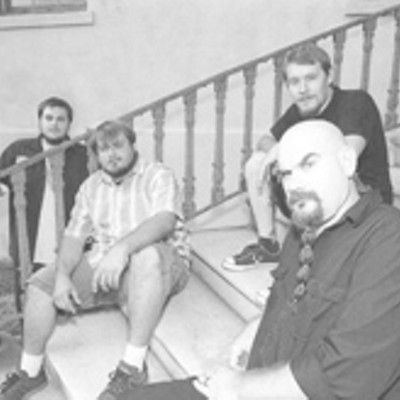YOU'VE HEARD IT FOR YEARS in one form or another: “Home taping is killing music.”
Whether it was that catchy, misleading slogan offered forth by the British Phonographic Industry (England’s version of our own Recording Industry Association of America), or the ridiculously hyperbolic Congressional testimony given under oath in 1982 by the late Motion Picture Association of America President (and father of today’s movie ratings system) Jack Valenti, which scarily warned, “the VCR is to the American film producer and the American public as the Boston strangler is to the woman home alone,” businesspeople whose fortunes depend on the sales of disposable entertainment media have long been petrified of new technologies.
It’s understandable these industries would quake at the notion of inexpensive equipment allowing users to easily copy audio and video recordings to their own cheap, blank media in high-fidelity.
And yet, despite very hard times in some segments of the U.S. music business —which the RIAA blames solely on “piracy” (in this case meaning illegally obtaining dupes of copyright-protected recordings rather than paying for brand-new official releases)— the reality is that such behavior is a small portion of a much bigger problem.
It merely reflects both the public’s unending fascination with music and movies and their long-simmering disgust with the way major entertainment conglomerates rig retail pricing, collude with major media to shill sub-par talent, and notoriously treat entertainers shabbily through onerous contracts and shady accounting practices.
Simply put, the public has finally woken up to the fact that the entertainment business is crooked, and it’s increasingly difficult to convince these consumers that turning a friend onto a great album or movie by making them a copy is at the crux of the industry’s sudden downturn.
They just ain’t buying it.
Most folks with some modicum of common sense find an inherent difference between taking the time to put together and give a compilation of their favorite artists to a small group of friends and making their entire music or video collections available to untold numbers of strangers through online file sharing. But the cockeyed demonizing of all such behavior by the RIAA and others only serves to reinforce the idea that the entertainment industry won’t rest until everyone —from the teen who sees how many artists’ back catalogs he can obtain for free to the senior who makes sure to burn a personal backup copy of all their discs, tapes and vinyl LPs— is painted as a criminal with the same broad brush.
This was brought in sharp focus on December 30, 2007, when an article in the Washington Post by Marc Fisher claimed that the RIAA had now adopted an extremely combative stance in its attempts to thwart piracy through high-profile lawsuits against average citizens they accuse of sharing copywritten media files online.
According to Fisher’s piece, in a case against Jeffrey Howell of Scottsdale, Ariz., the industry is now claiming that is illegal for consumers merely to transfer the contents of a CD to their own computer — even if they purchased the CD legally. The RIAA’s website clearly states that it views any such “unauthorized copy” as stealing, making the perpetrator liable for untold thousands of dollars in infringement fines.
The problem is that very day millions of people worldwide dump the contents of their own legally purchased music onto their computers as either a backup (long allowed under the law as “fair use”), or simply to create an organized library.
Subsequent reporting by another journalist seemed to pick apart Fisher’s article, saying the reporter intentionally omitted quotes from RIAA officials which might contradict such a major shift in policy.
However, so far, the RIAA refuses to simply and clearly state that they believe it is both fair and legal for consumers to create backup copies of music they own outright, and/or transfer them to another device — activities which many in the entertainment business admit has generated tons of revenue throughout the industry. (In fact, contrary to what some folks might have you believe, the average music fan buys almost twice as much pre-recorded music now compared to the pre-CD era.)
The best their president will offer is this: “Not a single (legal) case has ever been brought (by the RIAA against someone for copying music for personal use). Not a single claim has ever been made.”
Yet. 
To comment e-mail us at


























